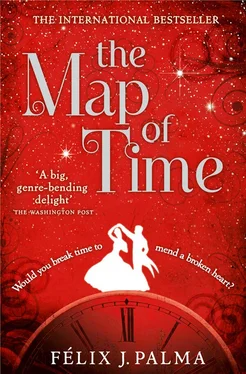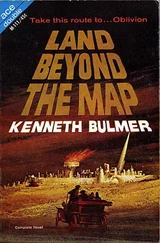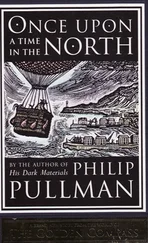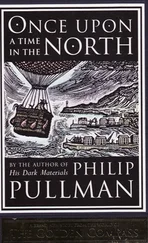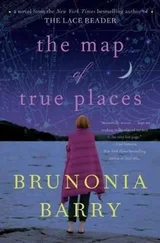Then something happened, which Tremanquai had described in a quavering, incredulous voice, as though he found it hard to believe the words he himself was uttering. The air had split open. He could think of no better way to describe it. It was like tearing off a strip of wallpaper, he said, leaving the wall bare. Except in this case it was not a wall but another world. A world the explorer was at first unable to see into from where he was standing, but which gave off a pale glow, lighting the surrounding darkness. Astonished, he watched the first of the Masai tumble into the hole that had opened between them and their intended victims and vanish from reality from the world Tremanquai was in, as though they had dissolved into thin air. On seeing their brothers swallowed up by the night, the rest of the Masai fled in panic. The explorer shook his head slowly, stunned by what he had seen.
He had lurched out of his hut and approached the hole that his hosts had opened in the very fabric of reality with their chanting. As he stood facing the opening, which napped like a curtain, he realised it was bigger than he had first thought. It rose from the ground, reaching above his head, and was easily wide enough for a carriage to pass through. The edges billowed over the landscape, concealing then exposing it, like waves breaking on the shore. Fascinated, Tremanquai peered through it as if it were a window. On the other side, there was a very different world from ours, a sort of plain of pinkish rock, swept by a harsh wind that blew sand up from the surface: in the distance, blurred by the swirling dust, he was able to make out a range of sinister mountains. Disoriented and unable to see, the Masai floundered in the other world, gibbering and running each other through with their spears. Those left standing fell one by one. Tremanquai watched the macabre dance of death, transfixed: the Masais’ bodies were caressed by a wind not of his world, like the strange dust clogging their nostrils.
The Reed People, still lined up in the middle of the village, resumed their ghostly chanting, and the hole began to close, slowly narrowing before Tremanquai’s eyes until it had disappeared. The explorer moved his hand stupidly across the space where the air had split open. Suddenly it seemed as if there had never been anything between him and the choir of Reed People, which now broke up, its members wandering to different corners of the village, as though nothing out of the ordinary had occurred.
For Tremanquai, the world as he had known it would never be the same. He realised he now had only two choices. One was to see the world, which he had hitherto believed to be the only world, as one of many, superimposed like the pages of a book, so that all you had to do was thrust a dagger into it to open a pathway through all of them. The other was simpler: he could lose his mind.
That night, understandably, the explorer was unable to sleep. He lay on his straw mattress, eyes wide open, body tense, alert to the slightest noise coming from the darkness. The knowledge that he was surrounded by witches, against whom his rifle and his God were useless, filled him with dread. As soon as he was able to walk more than one step without feeling dizzy, he fled the Reed People’s village. It took him several weeks to reach the port of Zanzibar, where he survived as best he could until he was able to stow away on a ship bound for London. He was back ten months after he had set out, but his experiences had changed him utterly.
It had been a disastrous voyage and, naturally enough, Sebastian Murray, Gilliam’s father, did not believe a word of his story. He had no idea what had happened to his most experienced explorer during the months he had gone missing, but he was clearly unwilling to accept Tremanquai’s tales of Reed People and their ridiculous holes in the air, which he considered the ravings of a lunatic. And his suspicions were borne out as Tremanquai proved incapable of living a normal life with his ‘widow’ and their two daughters. His wife would doubtless have preferred to carry on taking flowers to his grave than to live with the haunted misfit Africa had returned to her.
Tremanquai veered between apathy and random fits of madness, which swiftly turned the hitherto harmonious family home upside down. His accesses of insanity, which occasionally drove him to run naked through the streets or shoot at the hats of passers-by from his window, were a constant menace to the otherwise peaceful neighbourhood, and he was eventually carted off to the asylum at Guy’s Hospital, where he was locked away.
Yet he was not entirely abandoned. Unbeknown to his father, Gilliam Murray went to see him in hospital as often as he could, moved by the grief he felt that one of his family’s best men should be reduced to such a wretched state, but also thrilled to hear him narrate that incredible story. The young man of barely twenty, as Murray then was, visited the explorer with the eagerness of a child at a puppet show, and Tremanquai never disappointed him. Sitting on the edge of his camp-bed, his gaze straying towards the damp patches on the walls, he needed no encouragement to retell the tale of the Reed People, embellishing it with new and extraordinary details each time, grateful for the audience and for being given time to inflate his fantasy.
For a while, Murray believed he would regain his sanity, but after four years of incarceration, Tremanquai hanged himself in his cell. He left a note on a grubby piece of paper. In a spidery scrawl that could just as well have been his normal writing as distorted by his inner torment, he stated ironically that he was departing this world for another, which was only one of the many that existed.
By that time Murray had begun working in his father’s company. Although Tremanquai’s story still seemed to him sheer madness, but perhaps for that very reason, without his father’s knowledge he sent two explorers to Africa to search for the apparently non-existent Reed People. Samuel Kaufmann and Forrest Austin were a couple of numbskulls, partial to showing off and drunken sprees, whose every expedition ended in disaster. But they were the only men his father would not miss, and the only two who would nonchalantly set off to the Dark Continent in search of a tribe of singing witches with the power to open doorways to other worlds. They were also the only men to whom, because of their glaring ineptitude, he dared assign a mission so hopeless, which was really only a modest tribute to the memory of the hapless Oliver Tremanquai.
Kaufmann and Austin left England almost in secret. Neither they nor Gilliam Murray could have known that they would become the most famous explorers of their day. Following instructions, as soon as they set foot in Africa they sent telegrams giving news of their progress. Murray read these cursorily before placing them in his desk drawer with a sad smile.
Everything changed when, three months later, he received one telling him they had at last found the Reed People. He could not believe it! Were they playing a joke on him in revenge for his having sent them on a wild-goose chase? he wondered. But the details contained in the telegrams ruled out any possibility of deceit because, as far as he remembered, they tallied entirely with those embellishing Oliver Tremanquai’s story. Astonished though he was, he could only conclude that both they and Tremanquai were telling the truth: the Reed People did exist.
From that moment on, the telegrams became Gilliam Murray’s reason for getting up in the morning. He awaited their arrival with eager anticipation, reading and rereading them behind the locked door of his office, unwilling for the time being to share the amazing discovery with anyone, not even his father.
According to the telegrams, once they had located the village, Kaufmann and Austin had no difficulty in being accepted as guests. In fact, the Reed People were apparently incapable of putting up any form of resistance. Neither did they seem particularly interested in the explorers’ reasons for being there. They simply accepted their presence. The two men asked for no more and, rather than lose heart when faced with the difficulty of carrying out the essential part of their mission (which was to discover whether or not these savages could open passageways to other worlds), they resolved to be patient and treat their stay as a paid holiday. Murray could imagine them lounging around in the sun all day, polishing off the crates of whisky they had sneaked with them on the expedition while he had pretended to be looking the other way.
Читать дальше
